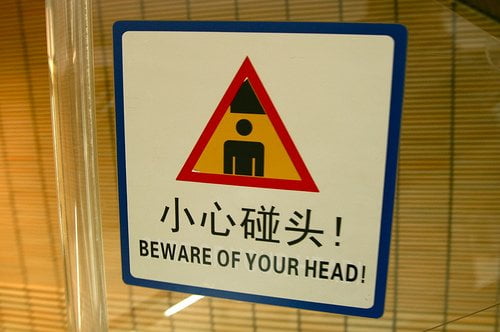 Sometimes even with the best of intentions, things don’t quite turn out as expected. Many companies in an eager attempt to engage with their international customers have translated their slogans and marketing materials that, unfortunately, have not had the same resonance as the original English version.
Sometimes even with the best of intentions, things don’t quite turn out as expected. Many companies in an eager attempt to engage with their international customers have translated their slogans and marketing materials that, unfortunately, have not had the same resonance as the original English version.
The famous coffee chain, Starbucks, left customers in their Welsh branch in Aberystwyth rather confused by their new signs which were translated into Welsh. Coffee lovers couldn’t quite make out the meaning of some of the signs as they didn’t make much sense. One message read: “our blonde roast coffee is light of body and taste our coffee to most easy to drink”. The Communications spokesman for Starbucks apologised to customers for the so-called ‘typos’ and promised they would be corrected promptly. [hr-line][/hr-line]
Another well-known corporation, the HSBC bank, was forced to scrap their advertising slogan ‘Assume Nothing’ as the translation aimed at their non-English speaking clients proved to be nonsensical; instead the message being conveyed was ‘Do Nothing’. The bank was forced to spend 10 million dollars on a new marketing campaign with a more meaningful tag line which could be translated more easily: ‘The world’s local bank.’
Joining the ranks of Starbucks and HSBC when it comes to translation blunders is a Copenhagen airlines ticket office which displayed a rather unnerving sign to passengers, which read: “We take your bags and send them in all directions”. This is certainly not the type of slogan that would inspire confidence or attract more customers, even though it might raise a few laughs.
It’s not just corporations that experience the odd translation gaffe, it can also happen to individuals especially when they rely on machine translation. Professor at Indiana University, Marissa Moorman, in her blog, shares her experience of a racist translation blunder. Using Google translate to translate some emails between friends from Portuguese into English, the end result was far from what was expected or intended. The original message in Portuguese read: “Ola carissmo amigo, esper que esteja tudo bem contigo manos e pais. Eu e minha irma estamos bem. Gostaria de manter contacto com voces. Abraco forte.”
The Google translate rendition of the message, however, was: “Hello friend carissmo, hope all is well with you niggas and parents. My sister and I are fine. I would like to keep in touch with you. Big hug.” Professor Moorman explains that ‘manos’ in Portuguese means ‘brothers’ but in Brazilian Portuguese it means ‘bro’ and ‘nigga’, terms taken from U.S. hip-hop. She goes on to explain that Google had obviously ‘pulled from the argot of Brazilian hip-hop, as the country with the largest number of Portuguese speakers happens to be Brazil.